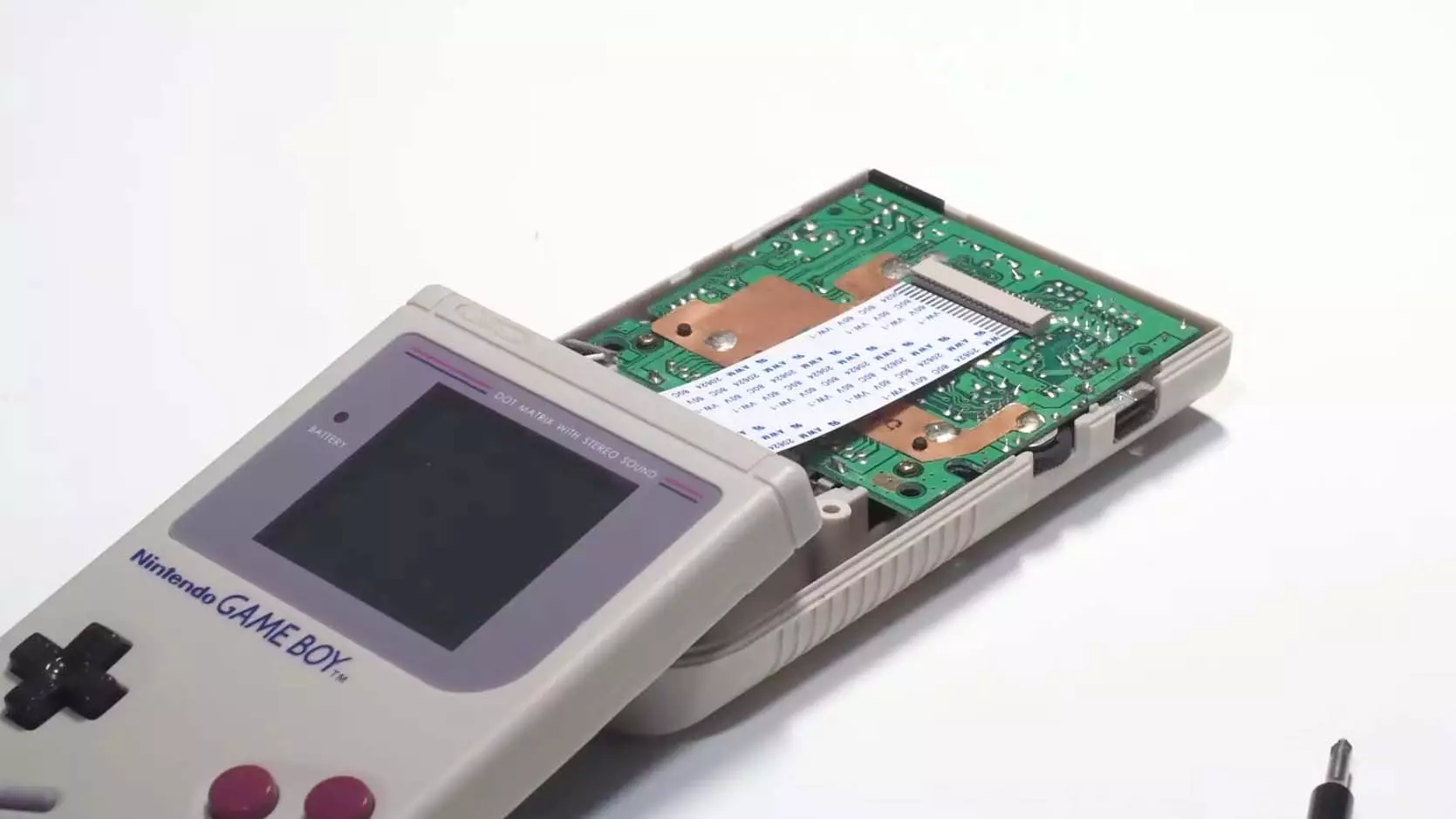In a world driven by relentless technological advancement, the field of electronics often feels like an intimidative realm populated by intricate components and microscopic soldering tasks. However, recent DIY projects, like the Open DMG Display modification for the Game Boy (DMG-01), are not just reviving nostalgia, but they are also offering a beacon of hope for aspiring modders. In particular, Tobi’s project exemplifies how electronic tinkering can be both approachable and rewarding, easing the steep learning curve that often accompanies circuit work. What once felt like an impenetrable barrier can, with proper guidance and creativity, become an inviting landscape ripe for exploration.
Simplifying Soldering: A Hands-On Approach
Tobi’s ingenuity lies in his ability to tackle soldering with a refreshing simplicity, comparing the skill to preparing a “slightly complicated grilled cheese.” By using readily available and affordable tools, he not only democratizes the technical know-how but also enables hobbyists of all skill levels to engage in upgrading their favorite gadgets. Tobi utilizes a USB-powered hotplate to manage the delicate process of assembling circuit boards, which allows individual components to be soldered precisely while minimizing common errors.
The method he adopts is both practical and innovative—utilizing strategically arranged smaller PCBs to stabilize the setup during the soldering process. This attention to detail ensures that each component is correctly aligned and securely fastened. Moments where solder paste melts and components shift into alignment, as described by Tobi, are reminiscent of an artful dance, marrying science and creativity in the most beautiful way. For those who might be intimidated by the precision typically demanded by such tasks, witnessing this transformation can be an exhilarating experience.
The Value of Imperfection
Interestingly, what stands out in Tobi’s project is the acceptance of imperfection. He acknowledges that while the final product might not be “perfect,” it transcends mere functionality. In fact, he provocatively argues that the outcome can still be significantly better than just operable. This philosophy resonates with a broader acceptance of trial-and-error in the maker culture, where every misaligned component serves as a learning opportunity rather than a definitive failure. The project inculcates a sense of empowerment; it reminds aspiring modders that even imperfect results can be highly satisfying and lead to further innovation.
Accessible Gaming Joy
Beyond merely upgrading a device, the Open DMG Display project opens the door for playful innovations. Tobi details how, with the effort put into the upgrade, individuals can even create custom games for their newly modified Game Boy without needing to delve into coding. This aspect invokes the ethos of creativity unbridled by technical barriers—a concept particularly appealing to today’s youth, who are eager to curate unique experiences rather than consume identical entertainment.
For those who find themselves unable to secure a Nintendo Switch 2, embracing a DIY approach through Tobi’s project can serve as an exhilarating alternative, potentially reinvigorating a love for retro gaming while fostering new skills. Reinventing the traditional Game Boy into a modern masterpiece using minimal resources is not just about nostalgia; it is about reclaiming a hands-on approach toward technology that many thought was lost in today’s digital age.
A New Wave of Electronics Enthusiasts
What Tobi’s project highlights is the shift in the DIY electronics community—one where accessibility and creativity pave the way for a new generation of electronic enthusiasts. Rather than feeling daunted by the prospect of creating something new, individuals are inspired to take their first steps toward this engaging field. The fusion of traditional gaming with modern electronics encapsulates a movement wherein anyone, irrespective of their background or expertise, can contribute to the growing landscape of innovation. With resources and community support flourishing online, embarking on projects like the Open DMG Display becomes less about the final product and more about the journey of exploration, learning, and enjoyment.
Thus, as individuals embark on their DIY electronics adventures, they are not only transforming devices but potentially crafting a future that celebrates creativity, accessibility, and community—one solder joint at a time.

